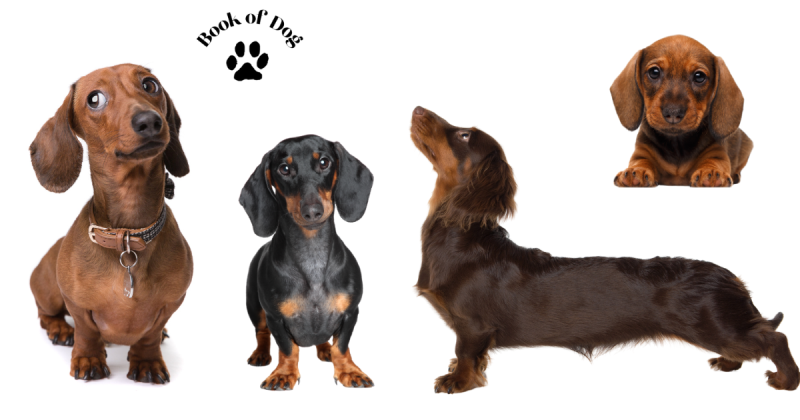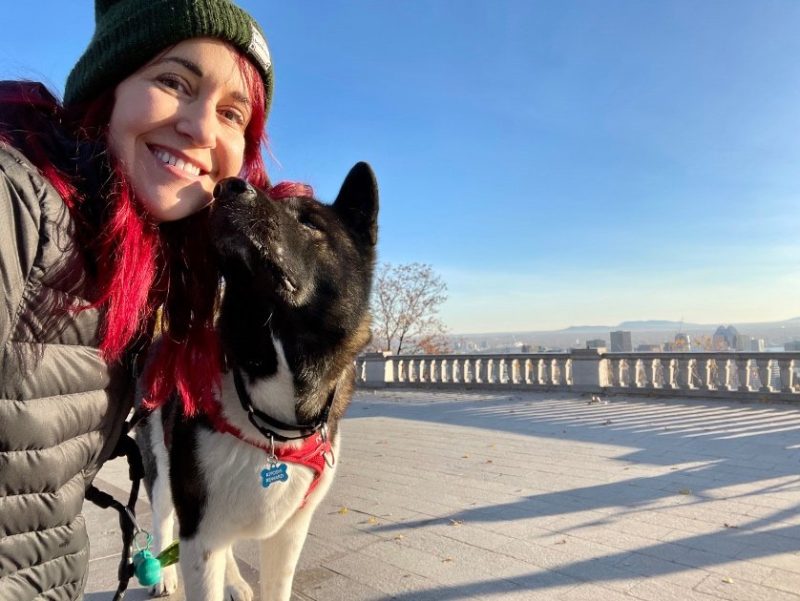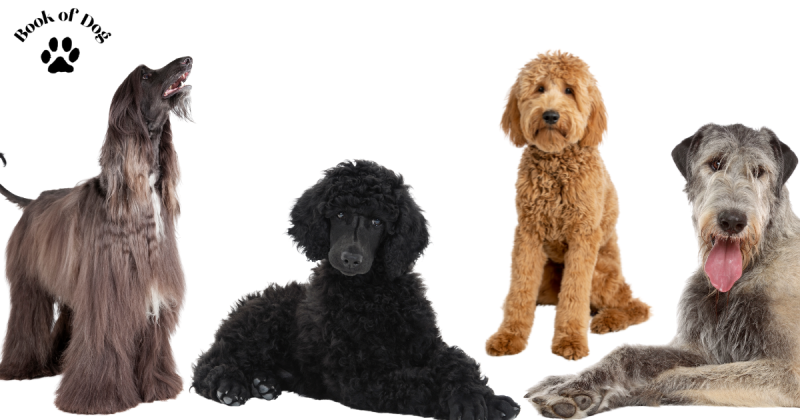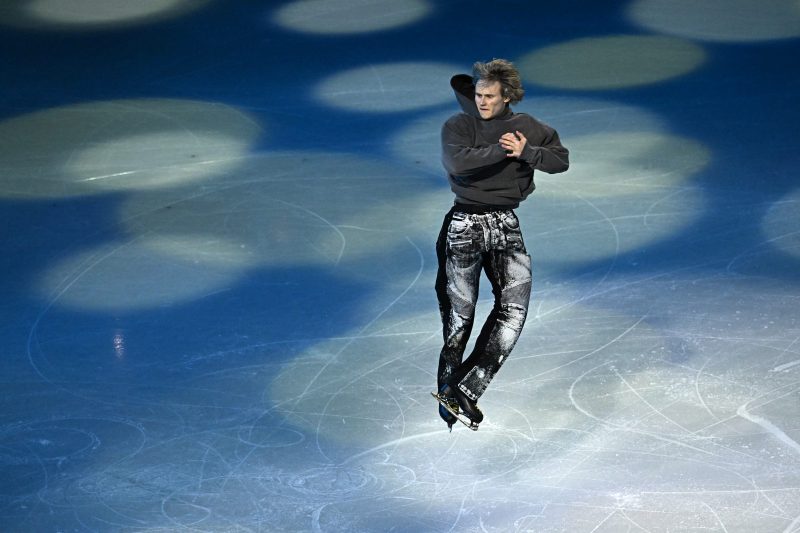Kai Ken Dog Breed InformationKai Ken Dog Breed Rundown
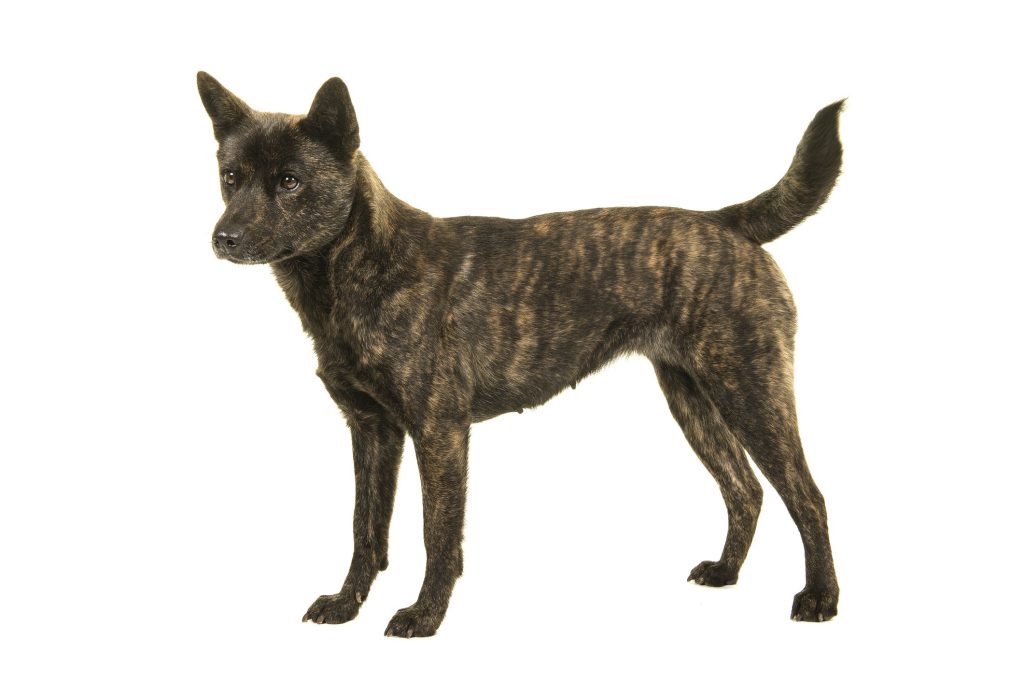
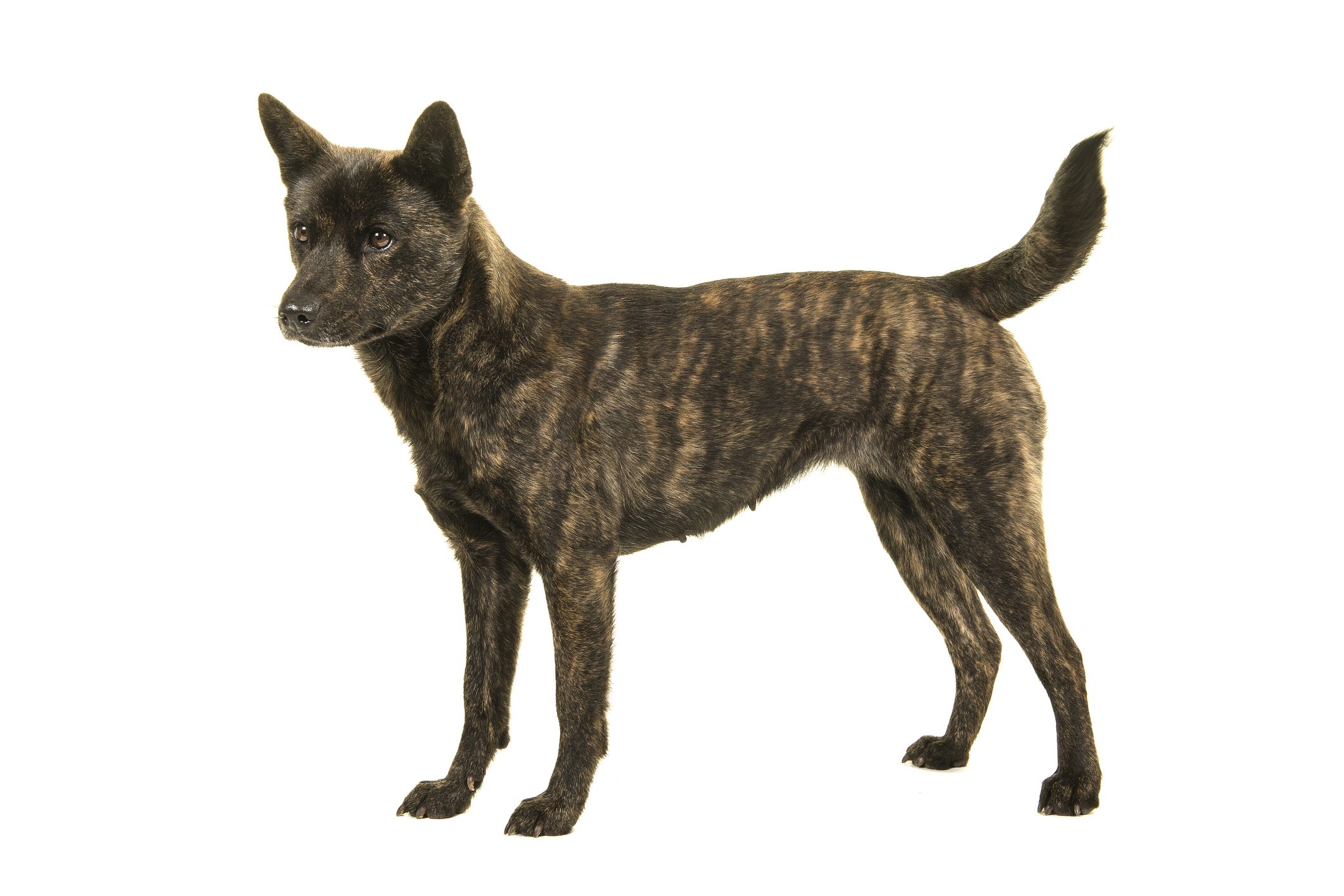

The Kai Ken dog breed is one of the six Japanese breeds, known as Nihon-Ken. These six breeds are national treasures in Japan. The Kai Ken is a medium-sized breed that is among the more rare Japanese breeds, even in its home country. The distinct, tiger-striped Kai Ken dog was originally bred for herding and has a loyal, smart, and active temperament. As withthe other Japanese breeds, Kai Ken are spitz-type dogs with thick double coats. In contrast with many of the Japanese breeds, however, Kai Ken tend to be sociable with other dogs, as they were bred to hunt in packs.
Other Japanese dogs include the Akita, Shiba Inu, Shikoku, Tosa Inu, and Hokkaido.

-
Height: 20 to 22 inches (males), 18 to 20 inches (females) (45 cm to 56 cm)
-
Weight: 25 to 55 lbs.
-
Lifespan: 12 to 16 years
-
Origin: Japan
-
Personality: The Kai Ken is alert, intelligent, and active. They are reserved with strangers but friendly with family and other dogs.
Kai Ken Appearance

The Kai Ken dog, also known as the Tora Inu or Tiger Dog, has a distinct brindle color that comes in shades of red (the rarest color), black, or brown. Kai Ken puppies are solid colored and they develop their stripes as they mature, sometimes taking up to five years to grow in their full brindle coats.
The Kai Ken dog has a thick, double coat to keep them warm in their native mountainous region of the Kai province in Japan. They have athletic builds, with a muscular, strong appearance. The medium-sized breed has a wolfish look, with triangular erect ears, a long body, and a lean, muscular build. According to the American Kennel Club, the medium-sized dog is 10 percent longer than tall, with a height at withers to length of body of 10:11.
Kai Ken dogs have thick tails that can be slightly curled or sickle-shaped. These agile pups have an alert expression and graceful movements. They have well-proportioned heads, with the length of the muzzle, measured from stop to the end of the nose, equal to the length of the skull, from occiput to stop, according to the AKC.
The Kai Ken dog has a medium-length double coat, with coarse outer guard hairs and a dense, thick undercoat. They need basic grooming with a nail trim and occasional brushing to stay healthy. The Kai Ken go through a shedding period twice a year, when they will need extra baths and brushing. They are naturally clean dogs, however, and require just basic grooming throughout the year.

Kai Ken History
The Kai Ken breed hails from the mountainous region of the Kai province near Mount Fuji in Japan. Kai Ken dogs were used to hunt a variety of game, ranging from deer to boar and bear in the mountains of Kai prefecture. To this day, Kai Ken dogs retain their strong prey drive and natural hunting instincts. They are agile climbers and excellent swimmers andtheir tiger stripes help them blend in with mountainous terrain.
In Japan, the Kai Ken is recognized as one of the six national breeds under Nihon Ken Hozonkai (NIPPO), which preserves the breeds. In 1931, the Kai Ken Aigokai was formed and is the oldest and largest Kai Ken registry in the world.The Kai Ken dog was designated a natural monument in Japan in 1933.
There is no exact record of when Kai Ken came to the United States, but American soldiers were believed to have brought them to the country around the 1950s. They are extremely rare in the U.S., with a few breeders scattered throughout the country.
The Kai Ken has been recognized by the Japanese Kennel Club since 1934. The United Kennel Club fully recognizes the Kai Ken and the American Kennel Club currently has limited recognition, with the breed categorized for Foundation Stock Service since 1997.

Kai Ken Temperament
The Kai Ken dog is a wonderful companion, with a loyal, intelligent nature. These medium-sized pups enjoy physical exercise and are natural athletes who excel in dog sports like agility and obedience. They love being with their humans and are extremely dedicated to their owners, forming a strong bond with them.
As with other Japanese dog breeds, Kai Ken are generally reserved with strangers. They tend to be great with kids. Kai Ken dogs are more eager to please than the other Japanese breeds, however, making training easier. The Kai Ken dog also has more social tendencies with other dogs than the other Japanese breeds since they were bred to hunt in packs.
Their strong curiosity and high prey drive usually mean it’s best to keep your Kai Ken on a leash or in enclosed, fenced areas, as they can take off after prey. Kai Ken dogs can adapt well to apartment living as they are not known for barking a lot and they are clean, loyal companions who like to be with their people.
Kai Ken dogs are made to move and they need plenty of exercise to keep them happy. If you love hiking or other outdoor activities, a Kai Ken is the perfect partner to explore with. A lack of exercise can lead to destructive behavior like chewing and digging.
Training Kai Ken Dogs
Kai Ken dogs are extremely smart and quick to learn. They are more eager to please than other Japanese dogs and can pick up obedience training easily. As with all dogs, early socialization and consistent training are the best strategies to keep your Kai Ken happy and well-adjusted.
Kai Ken have a strong prey drive which can make them excellent dogs for hunting, lure coursing, dock diving, flyball, and tracking. Their natural climbing abilities and athleticism also help Kai Ken dogs excel at agility. They’re also natural swimmers, hikers, and runners, making them perfect for active people who love the outdoors.
As with all dogs, Kai Ken dogs need mental stimulation. Dog sports, toys, and outdoor adventures will help them thrive. A bored and under-exercised Kai Ken dog can turn to unwanted behaviors such as chewing or digging if they are left to their own devices.

Famous Kai Kens
-
Former First Lady Nancy Reagan rescued a Kai Ken dog from the streets of Los Angeles and named him Little Bear. The 2010 children’s movie “First Dog” stars the Kai Ken Little Bear.
-
Many Kai Kens are featured in manga (Japanese comics and graphic novels). Kai Ken dogs have important roles in manga artist Yoshihiro Takahashi‘s series “Ginga: Nagareboshi Gin” and its sequel, “Ginga Densetsu Weed,” as well as “Kacchū no Senshi Gamu.”
Kai Ken Dog Health
The Kai Ken is generally a healthy dog that lives a long life, with an impressive average lifespan of 12 to 16 years. The breed can be prone to a few health conditions, however, including:
-
Luxating patella, also known as patellar luxation, is an orthopedic condition that happens when a dog’s kneecap (patella) moves out of its normal position in the knee. Treatment may be moderate (such as anti-inflammatory medicine) or, in more severe cases, require surgery.
-
Hip dysplasia is a common condition in medium to large dogs that can cause pain in the hip joint.
-
Seizures can occur in a small number of Kai Ken dogs. Seizures can be caused by idiopathic epilepsy, a genetic condition, or environmental factors.
Where to Get a Kai Ken
If you want to get a new pet and have an active lifestyle and time for training, the Kai Ken may be the perfect pup for you. If you’d like to provide a loving home for a Kai Ken dog, it may take some searching to find one of these rare dogs. The Kai Ken is a rare breed but they can end up in rescues and shelters just like other dogs.
-
You can sometimes find Kai Kens on rescue sites like Petfinder by searching for the breed.
-
The Kai Ken Society of America offers resources on Kai Ken dogs and links to Kai Ken breeders in the U.S. There are also some Kai Ken breeders in the U.S. that have pups available (often with a waitlist).
If you opt for a dog from a breeder, make sure you do thorough research and ask about any health issues in their bloodlines. If you can meet other owners who adopted from the breeder, that would be ideal. Make sure the pups are socialized and kept in a healthy environment at the breeder’s.
Good luck to you, and as a fellow owner of a Japanese breed, welcome to the pack!
Related Posts: 15 Best Dog Breeds for Trail Running, 15 Best Dog Breeds for Apartments, Best Dog Breeds for Cold Weather
